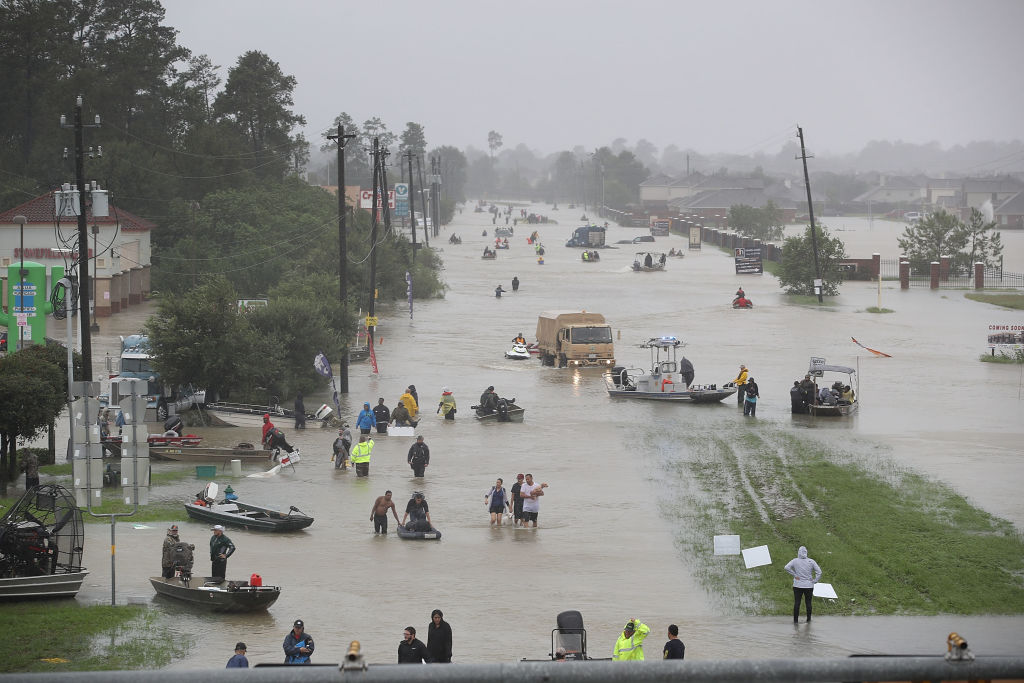Waters Rising: How Harvey's Floods Endanger Health

Houston and other parts of southeast Texas are in the midst of historic flooding from Harvey, now a tropical storm, with heavy rain still expected to batter the region in the coming days. How does flooding put people's health at risk?
The public health implications run deeper than the risk of injury and drowning during a flood, though these are a serious concern. [In Photos: Hurricane Harvey Takes Aim at Texas]
Indeed, the Centers for Disease Control and Prevention (CDC) notes a slew of risks related to floodwater and standing water, including wound infections and the spread of infectious diseases and chemicals in the water.
Dr. William Schaffner, a professor of preventive medicine at Vanderbilt University School of Medicine in Tennessee, said that the biggest concerns during and after a flood are injuries, access to medical care and providing people with clean water to drink.
Safe water is more important than food, Schaffner told Live Science. "Lack of food for a period of time is not a crisis," but lack of water can lead to serious dehydration in the very young and the very old, he said.
Crowded conditions
People's health is at risk even after they've been evacuated from a flood zone to relief centers.
When people are congregated in relief centers for long periods of time, it's not uncommon for illnesses to spread, Schaffner told Live Science. Respiratory viruses such as the common cold can spread through shelters, and though it's still a bit early for flu season, Schaffner said he'd still keep an eye out for cases of influenza.
Sign up for the Live Science daily newsletter now
Get the world’s most fascinating discoveries delivered straight to your inbox.
Less common in the United States, Schaffner noted, is the spread of gastrointestinal illnesses after a flood. For example, although norovirus is "very readily transmitted," there was only one outbreak of this virus in a relief center after Hurricane Katrina. Norovirus causes symptoms such as vomiting and diarrhea.
It takes "very few of those [norovirus] viral particles to cause infection," Schaffner said. The virus, which often spreads on cruise ships, can be transmitted through water and food, and can also spread from person to person, he said. "If it gets into a shelter, it's likely to spread to everybody in the shelter."
Fortunately, gastrointestinal diseases such as cholera have not played a major role in the U.S. after natural disasters, which is "a testimony to the fact that we live in an environment with good sanitation," Schaffner said. If that good sanitation were to break down, however, you could see outbreaks of more troublesome illnesses.
And although cholera is not a concern, a type of bacteria related to cholera could pose a threat, Schaffner said. This bug, called Vibrio vulnificus, can live in the water in the Gulf of Mexico and can cause a nasty infection if it gets into an open wound, he said. Wounds exposed to seawater after a coastal flooding disaster should be washed with soap and water as soon as possible, according to the CDC.
Another public health threat from hurricanes and flooding is moving people away from their usual sources of medical care.
People with diabetes or seizures may have left their medications at home, for example, Schaffner said. And events such as giving birth or having a heart attack can be more difficult to manage, because people are removed from their medical care resources, he said.
After the flood
Even after the floodwaters recede, threats to health will remain, Schaffner said.
Standing water in puddles, small receptacles and gutters can provide "an ideal breeding ground for mosquitoes," Schaffner said. And when you get mosquitos, you have to worry about mosquito-borne illnesses, including West Nile virus and Zika virus. Fortunately, Houston and Harris County — another area affected by the storm — have excellent mosquito control under normal circumstances, Schaffner added.
Once things get back to normal, "I would think that they would start monitoring [mosquito] populations and using their mosquito abatement techniques," he said.
Another concern after a flood is mold, but Schaffner noted that in the vast majority of cases, mold is an annoyance and a nuisance rather than a source of illness. "Mold-related illness is really quite rare," he said.
Originally published on Live Science.











